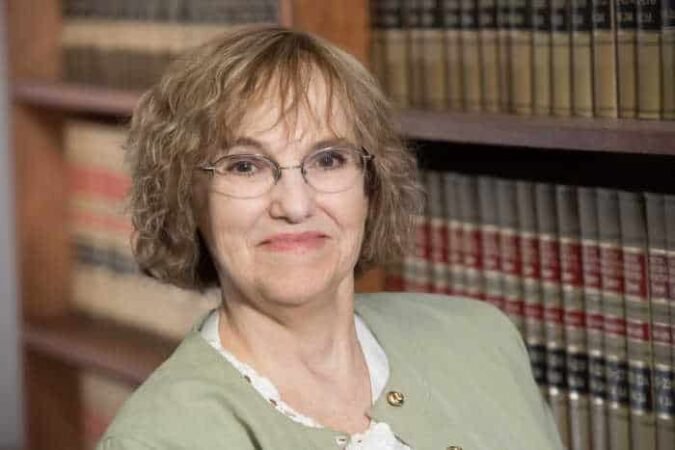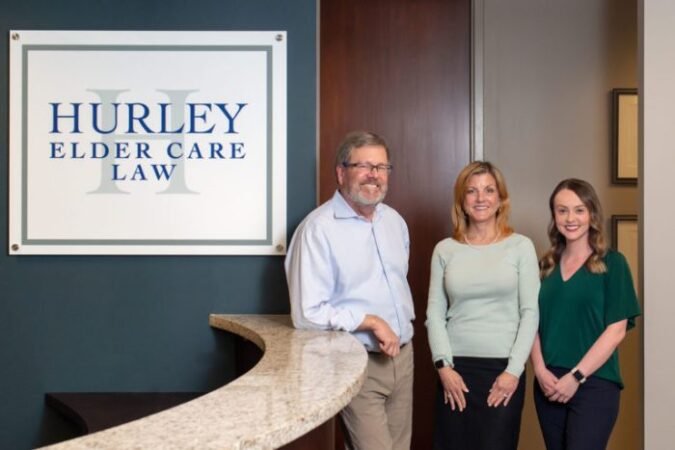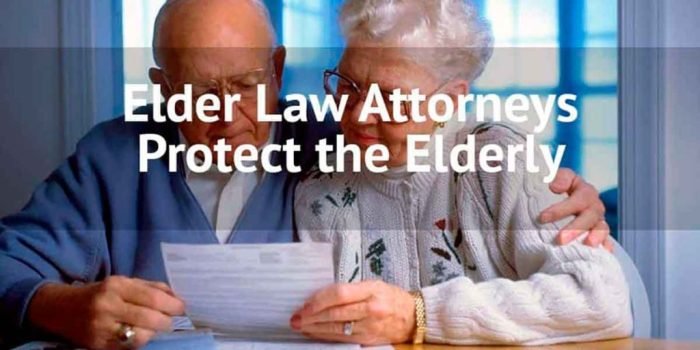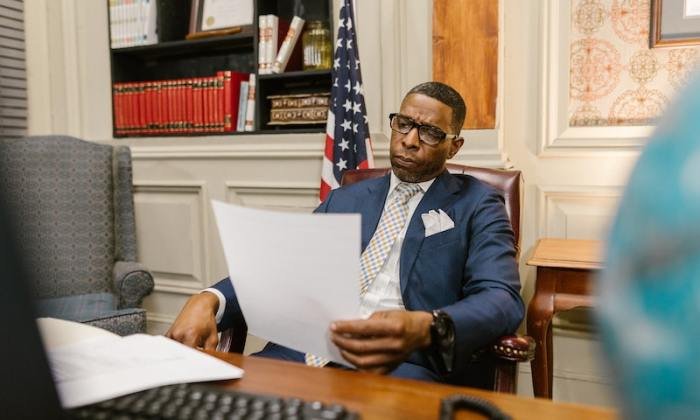
- Understanding Brownsburg, Indiana’s Elder Law Landscape
- Services Offered by Brownsburg Elder Law Attorneys
- Finding and Evaluating Brownsburg Elder Law Attorneys
- Key Legal Documents and Planning for Seniors in Brownsburg
- Common Elder Law Issues and Their Solutions in Brownsburg
- Illustrative Case Studies of Elder Law in Brownsburg
- Last Point
- Query Resolution
Navigating the complexities of aging can be challenging, especially when legal matters arise. In Brownsburg, Indiana, a growing senior population faces unique legal hurdles requiring specialized expertise. This guide explores the landscape of elder law in Brownsburg, outlining the services offered by local attorneys, common legal issues, and the process of finding qualified legal representation. Understanding your rights and options is crucial for securing a secure and comfortable future.
From estate planning and Medicaid applications to addressing elder abuse and navigating guardianship issues, Brownsburg elder law attorneys provide invaluable support. This resource aims to empower seniors and their families by clarifying the legal processes involved and highlighting the resources available to them within the Brownsburg community.
Understanding Brownsburg, Indiana’s Elder Law Landscape
Brownsburg, Indiana, like many communities across the country, is experiencing a growth in its senior population. This demographic shift brings with it a unique set of legal challenges and necessitates a deeper understanding of the specific elder law issues prevalent in the area. This section will explore the demographic characteristics of Brownsburg’s elderly population, common legal challenges they face, and examples of prevalent elder law cases.
Demographic Characteristics of Brownsburg’s Elderly Population
Brownsburg’s elderly population, while lacking precise, publicly available, granular demographic data broken down specifically by age cohorts and legal needs, shares characteristics with similar suburban communities in Indiana. We can infer a likely prevalence of individuals who have lived in the area for an extended period, potentially owning their homes and accumulating significant assets. Many likely transitioned to Brownsburg during their working years, establishing family ties and community connections that now influence their elder law needs. A significant portion may also be retired, relying on fixed incomes from pensions, Social Security, and personal savings. The increasing life expectancy contributes to a growing need for long-term care planning and related legal services.
Common Legal Challenges Faced by Seniors in Brownsburg
Seniors in Brownsburg, like their counterparts elsewhere, face a variety of legal challenges. These commonly include estate planning, including wills, trusts, and power of attorney documents; long-term care planning, addressing the financial and legal aspects of nursing homes or assisted living facilities; Medicaid and Medicare planning, to ensure access to government benefits; and guardianship and conservatorship issues, where individuals may require legal assistance to manage their affairs. Additionally, elder abuse and exploitation are serious concerns that require specialized legal intervention. Finally, disputes concerning inheritance and property ownership among family members are frequently encountered.
Examples of Prevalent Elder Law Cases in the Brownsburg Area
While specific case details are confidential due to attorney-client privilege, common examples of elder law cases handled in Brownsburg include: a family dispute over the distribution of a deceased parent’s estate, involving contested wills or trusts; the establishment of a guardianship for an elderly individual experiencing cognitive decline, ensuring their safety and well-being; negotiating with nursing homes regarding payment plans and resident rights; and assisting seniors in applying for and qualifying for Medicaid benefits to cover long-term care costs. These cases highlight the multifaceted nature of elder law and the importance of proactive planning.
Types of Elder Law Cases Handled in Brownsburg
| Case Type | Description | Common Issues | Potential Solutions |
|---|---|---|---|
| Estate Planning | Creating wills, trusts, and powers of attorney. | Lack of planning, family disputes, unclear wishes. | Comprehensive estate plan, mediation, litigation. |
| Long-Term Care Planning | Planning for nursing homes, assisted living, in-home care. | Medicaid eligibility, cost of care, facility selection. | Medicaid application assistance, contract negotiation, advocacy. |
| Medicaid/Medicare Planning | Maximizing benefits and minimizing out-of-pocket costs. | Complex regulations, asset protection, eligibility requirements. | Strategic asset planning, application assistance, appeals. |
| Guardianship/Conservatorship | Legal representation for individuals lacking capacity. | Financial mismanagement, neglect, abuse. | Court petitions, financial management, advocacy. |
Services Offered by Brownsburg Elder Law Attorneys

Elder law attorneys in Brownsburg, Indiana, provide a comprehensive range of legal services designed to address the unique challenges faced by senior citizens and their families. These services extend beyond simple estate planning and encompass a wide array of legal and practical assistance to navigate the complexities of aging. Understanding these services is crucial for ensuring the well-being and financial security of elderly loved ones.
Brownsburg elder law attorneys typically offer core services focused on estate planning, asset protection, and government benefits. Specialized services, often depending on the individual firm’s expertise, can significantly broaden the scope of assistance provided.
Core Services of Brownsburg Elder Law Attorneys
The foundation of elder law practice in Brownsburg rests on several core services. These services are interconnected and often require a holistic approach to ensure comprehensive legal protection and planning for the client’s future.
These core services typically include:
- Estate Planning: This encompasses the creation of wills, trusts (including living trusts and testamentary trusts), and powers of attorney (durable power of attorney for healthcare and finances). These documents are essential for designating beneficiaries, managing assets, and ensuring that the client’s wishes are followed after their passing or incapacity.
- Asset Protection Planning: This involves strategies to protect assets from potential creditors, nursing home costs, and other unforeseen expenses. Techniques may include creating trusts, utilizing certain types of insurance, and employing other legal strategies to shield assets while still providing for the client’s needs.
- Medicaid Planning: This complex area involves helping clients qualify for Medicaid benefits to cover long-term care expenses. Strategies can include asset transfers and other legal maneuvers to comply with Medicaid eligibility requirements while preserving as much of the client’s assets as possible. This often requires careful planning and a deep understanding of Medicaid rules and regulations.
- Veterans’ Benefits: Many veterans and their surviving spouses are eligible for significant benefits. Elder law attorneys can assist in navigating the application process and ensuring clients receive the benefits they deserve.
- Guardianship and Conservatorship: When an individual is no longer able to manage their own affairs, an attorney can assist in the process of establishing guardianship or conservatorship to protect their interests.
Specialized Services Offered by Some Brownsburg Elder Law Firms
Some Brownsburg elder law firms offer specialized services that go beyond the core offerings. These specialized services demonstrate a commitment to providing comprehensive and tailored legal solutions.
Examples of these specialized services include:
- Special Needs Trusts: These trusts are designed to protect the assets of individuals with disabilities while still allowing them to qualify for government benefits like Supplemental Security Income (SSI).
- Long-Term Care Planning: This involves comprehensive planning to address the financial and legal implications of long-term care needs, including nursing home placement and in-home care.
- Probate and Estate Administration: Assisting with the legal process of settling an estate after someone passes away.
Fee Structures of Brownsburg Elder Law Attorneys
The fee structures of Brownsburg elder law attorneys vary depending on the services rendered, the complexity of the case, and the attorney’s experience. It is crucial to discuss fees upfront with any potential attorney to avoid unexpected costs.
Common fee structures include:
- Hourly Rates: Attorneys charge an hourly rate for their time and services. This is a common structure for complex cases requiring extensive legal work.
- Flat Fees: Some attorneys offer flat fees for specific services, such as preparing a simple will. This provides predictability in costs.
- Contingency Fees: Less common in elder law, contingency fees are typically only used in certain types of litigation.
Sample Cost Table for Elder Law Services
The following table provides a general overview of potential costs. These are estimates and actual costs will vary depending on individual circumstances and the complexity of the case. It is crucial to consult directly with an attorney for accurate cost projections.
| Service | Estimated Cost Range | Factors Affecting Cost | Notes |
|---|---|---|---|
| Simple Will | $300 – $1,000 | Complexity of assets, number of beneficiaries | May include consultation |
| Revocable Living Trust | $1,500 – $5,000 | Complexity of assets, number of beneficiaries, tax implications | More complex than a simple will |
| Medicaid Planning | $2,000 – $10,000+ | Complexity of assets, health status, state regulations | Can be highly variable |
| Guardianship/Conservatorship | $3,000 – $15,000+ | Court fees, extent of legal proceedings | Significant court involvement |
Finding and Evaluating Brownsburg Elder Law Attorneys

Choosing the right elder law attorney is crucial for navigating the complex legal issues facing seniors and their families. A skilled attorney can provide guidance on matters such as estate planning, Medicaid applications, long-term care, and guardianship. Taking the time to research and carefully evaluate potential attorneys will ensure you find the best advocate for your needs.
Resources for Finding Qualified Attorneys
Finding qualified attorneys in Brownsburg can be done through several reliable avenues. These resources provide a starting point for your search, helping to narrow down the field of potential candidates.
- The Indiana State Bar Association: This organization maintains a directory of licensed attorneys in Indiana, allowing you to search by location and area of practice (elder law). It also provides information on attorney discipline and complaints.
- Online Legal Directories: Websites like Avvo, Martindale-Hubbell, and Justia offer attorney profiles with ratings, reviews, and biographical information. These sites can be helpful in comparing different attorneys and seeing what their clients have to say.
- Referrals: Ask your primary care physician, financial advisor, or other trusted professionals for referrals to elder law attorneys they have worked with and recommend.
- Local Bar Associations: The Hendricks County Bar Association (Brownsburg is in Hendricks County) may have a referral service or list of members specializing in elder law.
Criteria for Evaluating Attorney Experience and Qualifications
Once you’ve identified a few potential attorneys, it’s important to assess their experience and qualifications to ensure they are a good fit for your needs. Consider these factors when making your decision.
- Years of Experience in Elder Law: Look for attorneys who have dedicated a significant portion of their practice to elder law. Experience translates to expertise in handling the specific legal challenges faced by seniors.
- Specific Areas of Expertise: Elder law is broad. Determine which areas are most relevant to your situation (e.g., Medicaid planning, estate administration, guardianship). Choose an attorney with demonstrable experience in those areas.
- Client Testimonials and Reviews: Online reviews and testimonials can offer valuable insights into an attorney’s communication style, responsiveness, and overall effectiveness. Pay attention to both positive and negative feedback.
- Board Certifications or Specializations: While not always required, board certification in elder law demonstrates a commitment to specialized knowledge and skills in this area.
- Professional Affiliations and Memberships: Membership in relevant professional organizations (e.g., National Academy of Elder Law Attorneys – NAELA) indicates an attorney’s engagement with the field and commitment to ongoing professional development.
Checklist for Selecting an Elder Law Attorney
To help organize your search and ensure you make an informed decision, use this checklist when evaluating potential attorneys.
- Initial Consultation: Schedule a consultation to discuss your needs and assess the attorney’s communication style and responsiveness.
- Fees and Payment Plans: Understand the attorney’s fee structure and payment options upfront. Be clear about what services are included in the fees.
- Experience and Qualifications: Review the attorney’s resume and website to verify their experience and qualifications in elder law.
- Client References: Ask for references from past clients and contact them to gather feedback on their experience.
- Comfort Level: Choose an attorney with whom you feel comfortable and confident in their ability to represent your interests.
- Availability and Responsiveness: Consider the attorney’s availability and how quickly they respond to communication.
- Professionalism and Ethics: Ensure the attorney maintains high professional standards and adheres to ethical guidelines.
Key Legal Documents and Planning for Seniors in Brownsburg
Estate planning is crucial for seniors in Brownsburg, Indiana, ensuring their wishes are respected regarding their assets and care. Proactive planning provides peace of mind, protects loved ones from potential legal disputes, and allows for a smoother transition of assets and responsibilities. Failing to plan can lead to unintended consequences, including family conflicts and unnecessary legal expenses.
Importance of Estate Planning for Brownsburg Seniors
Effective estate planning safeguards a senior’s assets and ensures their wishes are carried out after their passing. This includes designating beneficiaries for assets, outlining healthcare preferences, and appointing individuals to manage financial and healthcare decisions if the senior becomes incapacitated. Proper planning minimizes potential tax burdens and simplifies the probate process, reducing stress on surviving family members. Without a plan, the state of Indiana will determine the distribution of assets, which may not align with the senior’s intentions. This can lead to significant legal costs and family disagreements.
Relevant Legal Documents in Brownsburg Elder Law
Several key legal documents are integral to comprehensive estate planning. These documents work together to provide a clear roadmap for managing assets and healthcare decisions, both during capacity and incapacity.
- Will: A will dictates how a person’s assets will be distributed after their death. It specifies beneficiaries for property, bank accounts, and other assets. A will also names an executor to oversee the probate process.
- Trust: A trust is a legal entity that holds assets for the benefit of another person or group. There are various types of trusts, each serving different purposes. For example, a living trust allows for asset management during life and avoids probate, while a testamentary trust takes effect after death.
- Power of Attorney (POA): A POA designates an individual to make financial decisions on behalf of the senior if they become incapacitated. This can include managing bank accounts, paying bills, and making investments.
- Healthcare Power of Attorney (HCPOA): An HCPOA, also known as a durable power of attorney for healthcare, appoints an individual to make healthcare decisions on behalf of the senior if they can no longer make them for themselves. This includes decisions about medical treatment, hospitalization, and end-of-life care.
- Living Will (Advance Directive): A living will Artikels a person’s wishes regarding medical treatment if they become terminally ill or permanently unconscious. It allows individuals to express their preferences regarding life-sustaining treatment.
Creating and Managing Legal Documents
The process of creating these documents typically involves consulting with an elder law attorney in Brownsburg. The attorney will guide the senior through the process, ensuring the documents accurately reflect their wishes and comply with Indiana law. Regular review and updates are essential, particularly as circumstances change (e.g., marriage, divorce, birth of a grandchild, significant asset changes). The attorney can assist with these revisions to ensure the documents remain current and effective.
Estate Planning Flowchart
+-----------------+
| Start |
+-----------------+
| V
+--------+--------+
| Consult Elder |
| Law Attorney |
+--------+--------+
| V
+-----+-----+-----+
| Will | Trust | POA/HCPOA |
| Creation | Creation| Creation |
+-----+-----+-----+
| V
+--------+--------+
| Document |
| Review & |
| Signing |
+--------+--------+
| V
+--------+--------+
| Secure |
| Storage |
+--------+--------+
| V
+--------+--------+
| Periodic |
| Review & |
| Updates |
+--------+--------+
| V
+-----------------+
| End |
+-----------------+
Common Elder Law Issues and Their Solutions in Brownsburg

Navigating the complexities of aging can present numerous legal challenges for seniors and their families in Brownsburg, Indiana. This section Artikels some common elder law issues and explores potential solutions, focusing on practical advice and legal recourse. Understanding these issues is crucial for proactive planning and effective problem-solving.
Elder Abuse Prevention and Legal Recourse
Elder abuse, encompassing physical, emotional, financial, and neglect, is a serious concern. Preventative measures include regular check-ins with elderly loved ones, establishing clear financial power of attorney arrangements, educating seniors about scams, and fostering open communication about concerns. If abuse is suspected, immediate action is vital. Legal options include reporting the abuse to Adult Protective Services, filing a police report, seeking a restraining order, and pursuing civil lawsuits for damages. A Brownsburg elder law attorney can guide victims and their families through the legal process, ensuring their rights are protected.
Medicaid Application and Government Assistance Programs
Applying for Medicaid and other government assistance programs can be a daunting process, requiring extensive paperwork and navigating complex eligibility requirements. These programs provide crucial financial support for medical expenses, long-term care, and other necessities for seniors with limited income and resources. A Brownsburg elder law attorney can assist with the application process, ensuring all necessary documentation is completed accurately and efficiently, maximizing the chances of approval. They can also help clients appeal denials and navigate any challenges that arise during the application process. Successful applications often depend on meticulous attention to detail and understanding the specific requirements of each program. For example, proper documentation of assets and income is crucial for determining eligibility.
Successful Case Resolutions
While specific case details are often confidential due to privacy concerns, several examples illustrate the positive impact of effective elder law representation. One case involved a successful recovery of significant financial losses for an elderly client who was the victim of a fraudulent investment scheme. The attorney’s diligent investigation and presentation of evidence secured a favorable settlement. Another case involved a successful guardianship appointment for a senior experiencing cognitive decline, ensuring their well-being and protection from exploitation. These examples highlight the importance of proactive legal planning and the crucial role of experienced elder law attorneys in protecting the rights and interests of vulnerable seniors.
Illustrative Case Studies of Elder Law in Brownsburg
This section presents hypothetical case studies illustrating common elder law issues encountered in Brownsburg, Indiana. These examples are for illustrative purposes only and do not constitute legal advice. Consult with a qualified Brownsburg elder law attorney for guidance on your specific situation.
Will Contest in Brownsburg
A Brownsburg resident, Mr. Arthur Miller, passed away leaving a will that bequeathed his substantial estate primarily to his second wife, leaving minimal provisions for his adult children from his first marriage. His children, believing the will was improperly executed due to undue influence exerted by the second wife, filed a will contest in Hendricks County Probate Court. The legal proceedings involved extensive discovery, including depositions of witnesses who could attest to Mr. Miller’s mental capacity at the time of the will’s signing. Expert testimony from a geriatric psychiatrist was presented by both sides. The court ultimately ruled in favor of the children, finding evidence of undue influence and setting aside the will. The estate was then distributed according to Indiana’s intestacy laws, resulting in a more equitable distribution among Mr. Miller’s children and second wife.
Guardianship of an Incapacitated Senior in Brownsburg
Mrs. Eleanor Vance, a Brownsburg resident, suffered a debilitating stroke, leaving her unable to manage her personal affairs. Her adult children petitioned the Hendricks County Probate Court for the appointment of a guardian. The court appointed a guardian ad litem to investigate Mrs. Vance’s situation and represent her best interests. After a hearing, where medical evidence of Mrs. Vance’s incapacity was presented, the court appointed one of her children as guardian of her person and estate. This involved the guardian assuming responsibility for Mrs. Vance’s personal care, finances, and medical decisions. Regular court reporting and accounting of the guardianship were required to ensure the protection of Mrs. Vance’s assets and well-being.
Long-Term Care Planning and Financial Implications in Brownsburg
Mr. and Mrs. Robert Johnson, a Brownsburg couple, sought legal advice regarding long-term care planning as Mr. Johnson’s health was declining. Their attorney helped them explore options such as Medicaid planning to protect their assets from the high cost of nursing home care. This involved creating a trust to shield some of their assets while still qualifying for Medicaid benefits. The attorney also assisted them in creating durable powers of attorney for healthcare and finances, ensuring that their wishes would be followed if they became incapacitated. This proactive planning allowed the Johnsons to maintain some financial security while accessing necessary long-term care services.
Challenges and Triumphs of a Brownsburg Elder Law Case
Mrs. Emily Carter faced a complex situation involving the mismanagement of her mother’s finances by a trusted caregiver. The case involved extensive investigation, gathering financial records, and working with law enforcement. The legal battle was protracted and emotionally challenging for Mrs. Carter. However, with the persistence of her attorney, they successfully proved the caregiver’s wrongdoing, recovered a significant portion of the misappropriated funds, and secured a court order preventing further access to her mother’s assets. While the process was arduous, the ultimate outcome provided justice and financial security for Mrs. Carter and her mother.
Last Point
Securing your future and the well-being of your loved ones requires proactive planning and informed decision-making. By understanding the intricacies of elder law in Brownsburg, Indiana, and engaging the services of a qualified attorney, seniors and their families can navigate the complexities of aging with confidence. Remember, seeking legal counsel early can prevent potential problems and ensure a smoother transition through life’s later stages. Take the proactive step towards securing your future today.
Query Resolution
What is the average cost of hiring an elder law attorney in Brownsburg?
Fees vary significantly depending on the attorney’s experience, the complexity of the case, and the services required. It’s best to schedule consultations to obtain personalized cost estimates.
How do I find an attorney who specializes in a specific area of elder law, such as Medicaid planning?
Many attorney websites and online directories allow you to filter searches by practice area. You can also directly contact law firms to inquire about their expertise in specific elder law matters.
What types of documents should I have prepared as part of my estate plan?
Essential documents typically include a will, durable power of attorney for healthcare, durable power of attorney for finances, and possibly a living will or advance healthcare directive. An attorney can advise on the documents best suited to your individual circumstances.
What should I do if I suspect elder abuse is occurring?
Immediately report your concerns to Adult Protective Services and contact an elder law attorney. Gather any evidence you can to support your claim.





